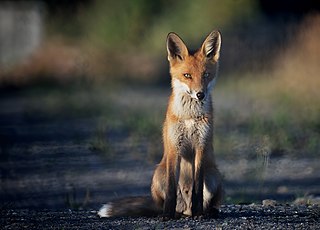See also
- Atkins (surname)
- Walter (name)
- Watkin
- Watkinson
- Watling
- Watson (surname)
- Watt (surname)
- Watts (surname)
- Latham & Watkins, American legal firm
Watkins is an English and Welsh surname derived as a patronymic from Watkin, in turn a diminutive of the name Watt (also Wat), a popular Middle English given name itself derived as a pet form of the name Walter.
Notable people with the surname include:
Blake is a surname which originated from Old English. Its derivation is uncertain; it could come from "blac", a nickname for someone who had dark hair or skin, or from "blaac", a nickname for someone with pale hair or skin. Another theory, presumably in the belief it is a Welsh patronymic in origin, for which there is no evidence, was that it is a corruption of "Ap Lake", meaning "Son of Lake".
Mills is an English and Scottish occupational surname. Mill workers or owners of one or more mills would have received the name, through being called John the worker of the mills, or Joe the owner of the mills until it was shortened to simply John or Joe Mills. Notable people with the surname include:
Holmes is an English-language surname with several origins.
Byrne is an Irish surname and less commonly a given name. It is derived from the Gaelic Ó Broin or Ó Beirn, which are also linked to the surname O'Byrne.
The surname Collins has a variety of likely origins in Britain and Ireland:
Griffin is a surname of Irish, English and Welsh origin. Griffin was the 75th most common surname on the island of Ireland in 1891. It was estimated in 2000 that Griffin is the 114th most common surname in the U.S., with a population in the order of two hundred thousand.
Powell is a Welsh surname. It is a patronymic form of the Welsh name Hywel, with the prefix ap meaning "son of", together forming ap Hywel, or "son of Hywel". It is an uncommon name among those of Welsh ancestry. It originates in a dynasty of kings in Wales, and Brittany in the 9th and 10th century, and three Welsh royal houses of that time onwards. The House of Tudor, one of the Royal houses of England, also descended from them.
Edwards is a patronymic surname of English origin, meaning "son of Edward". Edwards is the 14th most common surname in Wales and 21st most common in England. Within the United States, it was ranked as the 49th-most common surname as surveyed in 1990, falling to 51st in 2014.
Bird is an English surname, probably deriving from the vertebrates of the same name. Another common variant of this surname is "Byrd."
Thomas is a common surname of English, Welsh, Irish, Scottish, French, German, Dutch, and Danish origin.
Wallace is a Scottish surname stemmed from the Anglo-Norman French Waleis "Welshman". It is a northern variant form of Gualeis "Welshman" ; adjectiv gualeis "Welsh" ; same as walois "the oil language".
Richardson is an English surname most commonly found in the lowlands of Scotland . The prefix Richard is a given name popularised during the Middle English period derived from the Germanic ric ("power") and hard ("brave"/"hardy"). The suffix -son denotes "son/descendant of". The names Richard and Richardson are found in records as early as 1381 in Yorkshire, England. There are variant spellings including the Swedish Richardsson. People with the name Richardson or its variants include: Dickson, Dixon.
Russell, also Rosel, Rousel, Russel or Rossell. The origin of the name has historically been subject to disagreement, with two distinct origins proposed. Early genealogists traced the Russel/Russell family of Kingston Russel from Anglo-Norman landholders bearing the toponymic surname 'de Rosel' or 'du Rozel', deriving from Rosel, Calvados, Normandy. However, J. Horace Round observed that these flawed pedigrees erroneously linked toponymic-bearing men with unrelated men who instead bore the Anglo-Norman nickname rus[s]el, given men with red hair. This nickname was a diminutive of the Norman-French rus, meaning 'red', and was also an archaic name for the red fox, which in turn borrowed from Old Norse rossel, "red-haired, from Old Norse ros "red hair color" and the suffix -el. Round concluded "there is no reason to suppose that the surname Russell was territorial at all," and surname dictionaries have preferred to derive the surname from the nickname. Dictionaries also state that the English name Rufus originally meant "red haired".
Crawford is a surname and a given name of English and Scottish origins.

Fox is a surname originating in England and Ireland. The derivation is from the Middle English "fox", itself coming from the Old English pre 7th century "fox". The surname first appears on record in the latter part of the 13th century, with the first recorded spelling in 1273 to be that of John Fox in the "Hundred Rolls of Yorkshire", England. In Ireland, Fox is mainly a translation of the Old Gaelic "Mac a'tSionnaigh".
Phillips is a common patronymic surname of English and Welsh origin that derives from the given name Philip.
Webb is an English and Scottish surname meaning weaver of cloth.
Oliver is a surname derived from the personal name Oliver. The Scottish Oliver family was a sept of the Scotland Highlands' powerful Clan Fraser of Lovat. There are many different Oliver families in North America.